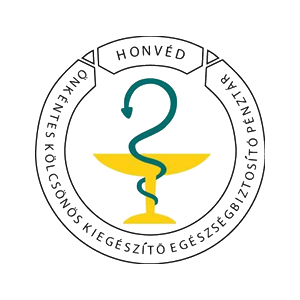Development of large intestine cancer is largely promoted by fast-paced, hectic, unhealthy lifestyle and lack of physical exercise.
Here also applies that the most effective way to avoid severe diseases such as gastric, colon or rectal cancer) is prevention. If the condition is diagnosed early and treated with an appropriate, targeted therapy, in most cases it can be cured totally, without having any symptoms and/or its progression can be stopped. Usually it takes a long time for the body to develop a gastric or rectal cancer; consequently, gastric and rectal cancer screening allows us to identify abnormalities at an early stage, ensuring a much better prognosis than that of an advanced-stage cancer.
Formation of a gastric or colorectal disease is a very complex process including several stages. Many people have disbelief that their main risk factor is represented by genetics. Actually, beyond genetic factors, dietary habits, lifestyle and exposure to several environmental impacts play also a very important role here.
Risk of gastric cancer may be increased by the following factors:
- alcohol abuse
- foods that are high in salt
- foods conserved by salting, smoking, curing
- excessive consumption of red meat
- low-fibre diet
- excessive consumption of foods with high carbohydrate and/or fat-content
- smoking that has a carcinogenic effect in itself but potentiates (enhances) the impact of other risk factors.
When to undergo a gastroscopy and/ or colonoscopy?
It is reasonable to have a gastroscopy and/or colonoscopy if you have a family history of any of the following diseases:
- gastric cancer
- colorectal cancer
- pancreatic cancer
- uterine cancer.
Age groups over 50 are at especially high risk; so if you are over 50 and haven't had a gastroenterology examination, gastroscopy, colonoscopy yet, you are strongly recommended to make an appointment for such screening even if you do not experience any typical symptoms.
Upon patient's request or the specialist's recommendation, endoscopy (i.e. gastroscopy, colonoscopy) may be performed under general anaesthesia if you would like to undergo an examination totally painless and free of any undesired symptoms and discomfort. In this case, it is all guaranteed!
How does general anaesthesia for gastroscopy and colonoscopy go?
General anaesthesia and examination is carried out by a medical team consisting of a gastroenterologist, an anaesthesiologist and specialized nurses.
Before introducing anaesthesia, the anaesthesiologist performs medical check of the patient. In some cases, when concomitant diseases are present, further preliminary examinations may be necessary to carry out, such as blood tests, ECG, cardiology, pulmonology etc. so as to evaluate whether anaesthesia can be done safely). If the patient has related documents (medical reports, test results) that were done within 4 to 6 weeks prior to endoscopy it is no need to repeat such preliminary analyses.
Should general anaesthesia be chosen, the patient has to refrain from consuming any liquid (including water) for 4 hours prior to the examination.

















